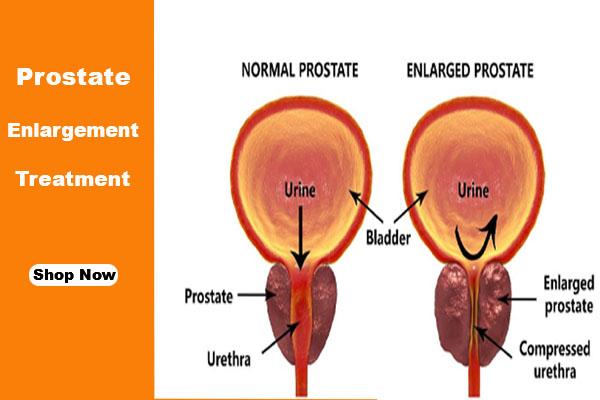Table of contents [Show]
- What Is Hidden Inflammation?
- Common Signs of Hidden Inflammation
- 1. Persistent fatigue
- 2. Hidden inflammation joint aches and stiffness morning
- 3. Digestion problems
- 4. Unexplained weight gain
- 5. Skin or acne resulting from hidden inflammation
- 6. Frequent infections silent inflammation immune suppression
- 7. Brain fog symptoms
- 8. High blood sugar
- How to Test for Hidden Inflammation
- Causes of Invisible Inflammation
- Simple Ways to Reduce Hidden Inflammation
- A Quick Hidden InfIammation Symptoms Checklist
- Symptom Pair
- Could It Be Hidden Inflammation?
- When to See a Doctor
- Recommended Supplements for Treating Hidden Inflammation
Hidden inflammation is a low‑grade, chronic immune response that often goes unnoticed in everyday life. You might feel okay, yet your body is quietly fighting. This article helps you know those subtle signs of chronic inflammation and how to act.
What Is Hidden Inflammation?
Hidden inflammation refers to mild, ongoing inflammation that doesn’t show obvious signs like swelling or redness. It differs from acute inflammation, which brings noticeable pain or swelling. This silent inflammation can simmer throughout the body and raise risk for heart disease, diabetes, cancer, and mood issues . Hidden inflammation often arises from modern lifestyle: processed foods, long hours sitting, stress, air pollution, or too little movement .
Common Signs of Hidden Inflammation
1. Persistent fatigue
Feeling drained even after sleep suggests the body is diverting energy to fight low‑level inflammation .
2. Hidden inflammation joint aches and stiffness morning
Stiff joints or muscle aches with no clear injury raise concern, especially when pain comes and goes .
3. Digestion problems
Bloating, diarrhea, constipation, acid reflux or IBS may come from intestinal inflammation due to food sensitivities or chronic low‑grade immune activity .
4. Unexplained weight gain
Weight shifts without changes in diet or exercise may be a result of inflammation disrupting metabolism .
5. Skin or acne resulting from hidden inflammation
Frequent breakouts or skin rashes may hint at internal inflammation affecting skin health .
6. Frequent infections silent inflammation immune suppression
Recurring colds or infections can happen when low‑grade inflammation overworks and weakens immunity .
7. Brain fog symptoms
Trouble concentrating or memory lapses may come from inflammatory chemicals affecting brain blood flow .
8. High blood sugar
Elevated blood sugar or insulin resistance can relate to inflammation deep within the gut or tissue .
How to Test for Hidden Inflammation
A blood test for C‑reactive protein (CRP) is one reliable way to detect hidden inflammation, though it won’t show where the inflammation is in the body. Some labs also measure serum amyloid A, fibrinogen or cytokines. These could point to immune activity beneath the surface .
Causes of Invisible Inflammation
- Lifestyle Causes: Sedentary behavior, processed food, sugar, poor sleep, high stress, and polluted air can all promote silent inflammation .
- Genetics and Age: Aging changes immune responses. Visceral belly fat and hormonal shifts may boost inflammation in older adults .
- Autoimmune Risk: Conditions like rheumatoid arthritis or IBD often involve hidden inflammation even before symptoms appear.
Simple Ways to Reduce Hidden Inflammation
Anti inflammatory diet reduce hidden inflammation naturally
- Choose whole ingredients: leafy greens, fatty fish, nuts, berries and avoid refined sugar, processed food, and trans fats .
- Move often: Daily exercise like walking, stretching, strength training helps reduce inflammatory markers and supports recovery.
- Manage stress and sleep: Meditation, rest, and a steady sleep schedule ease hidden inflammation and brain fog.
- Avoid triggers: Reduce exposure to pollutants and allergens, and limit alcohol or refined food.
If left unchecked, silent inflammation can raise the risk of heart disease, type 2 diabetes, depression, obesity, cancer, and neurodegenerative illness. Tackling invisible inflammation early offers a path to long‑term health and vitality.
A Quick Hidden InfIammation Symptoms Checklist
Symptom Pair | Could It Be Hidden Inflammation? |
| Persistent fatigue + brain fog | Yes |
| Morning joint stiffness + mild aches | Yes |
| Bloating + diarrhea or constipation | Possible |
| Sudden weight gain or loss without cause | Yes |
| Acne, rash, skin breakouts | Possible |
| Frequent colds or slow recovery from illness | Yes |
When to See a Doctor
Talk to a medical provider if persistent fatigue, unexplained pain, digestive issues, weight shifts, or mood changes persist for more than a few weeks. They may run CRP and related inflammatory marker tests.
Hidden inflammation may go under the radar, but it leaves subtle signs. You may notice fatigue, stiffness, digestive complaints, or brain fog. A few simple blood tests can confirm it. The best defense is a steady anti-inflammatory lifestyle. Eat well, move often, manage stress, and get proper sleep. Over time you may feel more energetic, clearer, and simply healthier.
Recommended Supplements for Treating Hidden Inflammation
Forever Fields of Greens is more than a blend of grasses and natural herbs, it plays an important role in fighting hidden inflammation. Its combination of wheat grass, barley grass, alfalfa, and cayenne pepper provides key antioxidants, minerals, and chlorophyll that support the body’s natural detox process. These ingredients help remove internal toxins, reduce oxidative stress, and create an alkaline environment that limits low-grade inflammation triggered by poor diet and lifestyle. Over time, this can ease symptoms related to fatigue, bloating, and immune stress, all of which are connected to underlying inflammation.
Forever Move is a targeted anti-inflammatory supplement designed for joint and nerve health. It contains Natural Eggshell Membrane (NEM) and BioCurc, a highly absorbable form of curcumin from turmeric. These ingredients are known for their powerful anti-inflammatory effects throughout the body not just in the joints. NEM provides nutrients like chondroitin, collagen, and hyaluronic acid, which help repair joint tissue and reduce local inflammation. Meanwhile, BioCurc works systemically to calm inflammatory pathways in the body, making this product effective not only for joint pain and stiffness but also for managing chronic, silent inflammation that can affect the muscles, nerves, and connective tissues.
Forever Active Pro-B targets inflammation at its source: the gut. Chronic digestive issues, poor diet, and stress can disrupt the gut microbiome and trigger systemic inflammation. This probiotic formula contains over 8 billion CFU from six clinically studied strains, including Lactobacillus rhamnosus, which help restore healthy gut flora. The addition of prebiotic fiber supports long-term balance. By maintaining a healthy digestive tract, this supplement reduces internal stress and improves nutrient absorption—two key factors in preventing and reducing inflammation that often goes unnoticed until it causes bigger problems.
Forever Aloe Vera Gelly offers external relief for inflammation that affects the skin. Whether it’s redness, irritation, or mild swelling, the pure aloe vera in this formula helps calm and heal inflamed skin tissue. Its cooling and soothing properties make it useful for minor burns, insect bites, and allergic reactions. Regular application can support skin repair and barrier function, especially for people dealing with inflammation-related skin conditions like eczema or dermatitis.
Forever Bee Propolis is a natural anti-inflammatory agent sourced from bee resin. It contains over 300 beneficial compounds, including flavonoids and essential vitamins that support immune response and fight off infections. What makes bee propolis especially valuable is its ability to reduce hidden inflammation caused by low-grade infections, respiratory stress, or immune imbalance. With its antimicrobial and antiviral properties, it helps the body maintain a balanced state and lowers the risk of flare-ups related to chronic inflammation, particularly in the sinuses, throat, and lungs.

 Kefas Solomon
Kefas Solomon


Leave a comment
Your email address will not be published. Required fields are marked *